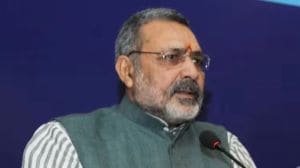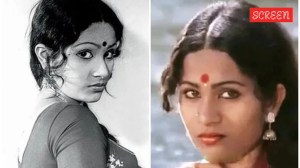Move to influence Hawala bench, says Chief Justice
NEW DELHI, July 14: The Chief Justice of India, J S Verma, who heads the bench monitoring the hawala case, today said the judges were under...

NEW DELHI, July 14: The Chief Justice of India, J S Verma, who heads the bench monitoring the hawala case, today said the judges were under pressure to withdraw from the case but declared that the court would not be deterred. This unprecedented statement came at the outset of the hearing of amicus curiae Anil Divan’s petition challenging the transfer of former Central Bureau of Investigation (CBI) director Joginder Singh.
Before taking up the case, a visibly upset Justice Verma said that there had been persistent attempts to influence the judges. The three-judge bench comprises of Justice S P Bharucha and Justice S C Sen, along with Justice Verma.
“These are very cheap tactics,” he said, “and are not going to work with us. We know some people in the court must be connected with these activities. This type of harassment will not work. We are not going to recuse ourselves from this bench and only this bench is going to hear the case and none else.” Without revealing the identity of the person or persons who, he said, were putting pressure on the judges, the Chief Justice said that for quite sometime – since the case was taken up by the court – he had come under pressure to withdraw.
“Today I am saying this and that too in a restrained manner only because it is spreading to my brother judges. All types of things began happening to me and the same things are happening to my brother judges. We are getting all types of calls with some persons persistently trying to reach us and influence us,” said Justice Verma.
Elaborating on the pressure, Justice Verma said, “There has been this gentleman who has been trying his best to meet me and has failed. But now I am shocked to hear from my brother judge, Justice Sen, that someone had managed to meet him. Justice Sen happened to recount this incident to me and when I asked him whether it was the same gentleman who tried to reach me, he confirmed it. The issue has upset him very much but I told him to ignore it,” the Chief Justice told the court.
Justice Verma said he was, however, further shocked when two days ago, the same person attempted to meet Justice Bharucha.
“The case is with us and we will deal with it the way it should be dealt with. I hope this hint percolates to the person trying to influence us. This is the absolute minimum I can say about this incident.”
On the issue of transfer of former CBI director Joginder Singh, the bench refused to go into the reasons for the transfer saying that the director wasn’t a part of the actual investigating team.
The court asked Divan and Attorney General Ashok Desai to make their submissions by August 19 so that the “broader issue” of the CBI’s autonomy could be discussed.Referring to the transfer of Singh, the judges also said that they were there to ensure that all investigations under the supervision of the court were done honestly and fairly. “If someone in probe teams is changed, like Bezbaruah (Director of Enforcement) from the enforcement directorate, for example, then the government must come to us for permission,” the judges observed.
In a written submission on behalf of the Union of India, Desai told the court: “There is no proposal at present to transfer Bezbaruah.”Responding to a submission made by Divan that Singh’s transfer was not in order as the present director was already on extension and, therefore, could not be promoted, the judges said: “Your submission is that Joginder Singh should have continued. We are not too sure. Let us be blunt about it, his removal should have come earlier.
He thought that he had the protection of the court to do whatever he liked but the protection was only meant for the performance of his duties. From time to time, allegations were made against him in the Patna case.”
The court further added that there has been no change in the investigating team and clarified that its earlier order saying the person at the top is in charge meant that the persons at the top are also accountable.
Commenting on the charge made by Divan that the present incumbent’s (R C Sharma’s) statements would send wrong signals to the public, the court said, “If the person in charge of overall supervision is wanting, then that is for the government to decide and not us.” When Divan sought to bring it to the notice of the court that the earlier revenue secretary had informed the court when he had to go for an overseas assignment and a new person was taking over, the court said that the position of the earlier CBI director and revenue secretaries was different as they had initiated the investigation. “That time the CBI director had sought immunity, so that investigations can go ahead. Primarily, we are concerned with the sanctity of the investigating team,” the judges said.
While admitting that the manner of removal of Singh in itself might not be correct, the court said the government action might have been correct as the former director was exposing himself to too many opportunities for criticism.



- 01
- 02
- 03
- 04
- 05




























